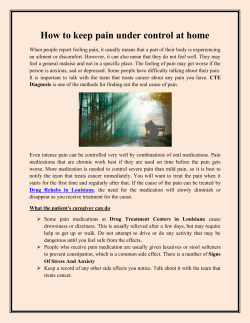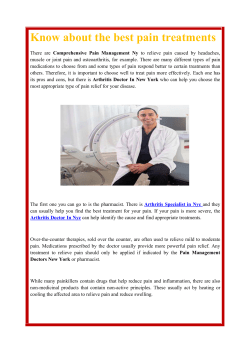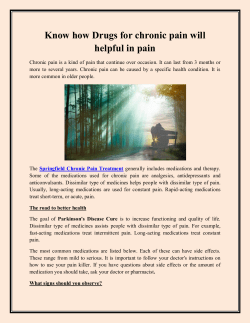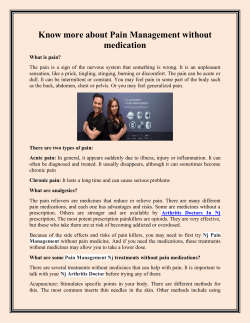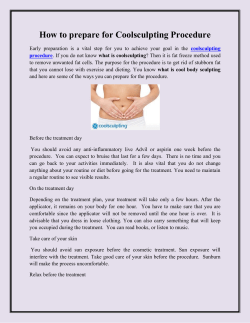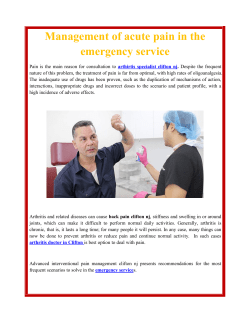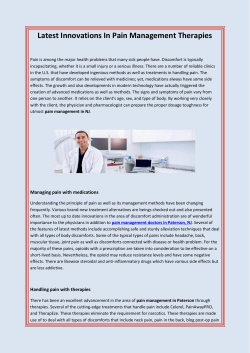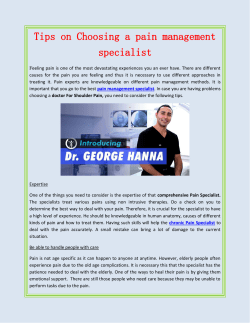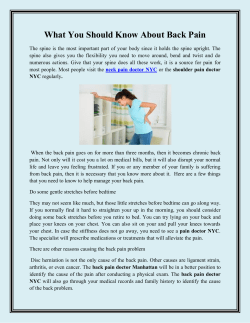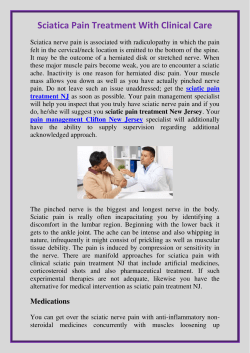
Learn about different types of pain treatment
Learn about different types of pain treatment Below are some ways to deal with pain RICE technique Over-the-counter pain killers Medications with a prescription Other methods for pain management RICE technique After determining whether or not to have an infusion, you should treat acute pain by means of the acronym RICE: rest (rest), ice (ice), compression (compression) and elevation (elevation). Rest: Avoid using the affected body part for 24 to 48 hours. If you suspect a hemorrhage, you can also use a splint on the joint to limit your movement. Ice: Apply ice to the affected area. Ice tightens blood vessels and helps reduce pain and inflammation. Compression: Use elastic bandages on the affected area. The compression serves to reduce the pain and prevent the bleeding from continuing. Elevation: Keep the affected body part elevated. Elevation reduces inflammation. Over-the-counter pain killers for new jersey chronic pain treatment You can also consider using over-the-counter (OTC) or prescription medications to reduce acute pain. Since many painkillers can be harmful to people with bleeding disorders, you should be careful with what you use. Nonsteroidal anti-inflammatory drugs (NSAIDs) (eg, aspirin, ibuprofen, and naproxen) can interfere with clotting by affecting the functioning of platelets. Some people with hemophilia can take ibuprofen or naproxen without increasing their bleeding, but this should be done under the supervision of their nj arthritis doctor. Some people use celecoxib, which is a type of prescription NSAID called a COX-2 inhibitor, which does not affect the function of platelets. There are some concerns related to the use of celecoxib because similar medications are associated with an increased risk of heart attacks. These factors must be taken into account before deciding which medication is the best to manage the pain. nj joint pain specialist is an over-the-counter option for pain management that does not interfere with coagulation. However, since prolonged use of acetaminophen can cause liver damage, it should be limited to no more than 4,000 milligrams daily if you are 60 years old or less or 3,000 milligrams daily if you are over 60 years old. People affected by the human immunodeficiency virus (HIV) or hepatitis C virus (HCV) should consult their healthcare provider before using acetaminophen. Medications with a nj pain doctors prescription There are prescription medications to help with short-term pain, and sometimes with chronic pain. These include oxycodone, morphine, methadone and codeine. These medications are effective in many people but can be addictive. They should be used as directed and only under pain doctor nj medical supervision. Other methods for pain management clifton new jersey Chronic pain is often treated with over-the-counter or prescription medications, but there are other strategies that can also be used, such as joint replacement, fusion, or reconstruction. Chronic pain can also respond to physical therapy and exercise. In addition to keeping your joints and muscles strong and healthy, physical therapy can help reduce pain. Your physiotherapist can design a program specifically for your needs and current health status. Another possible technique for pain management clifton nj in people with bleeding disorders is transcutaneous stimulation (TENS). During TENS, a low-voltage electrical current is transmitted through the skin to stimulate the nerves in the affected region. The stimulus, which is not painful, is enough to hide the pain signals.
© Copyright 2026
